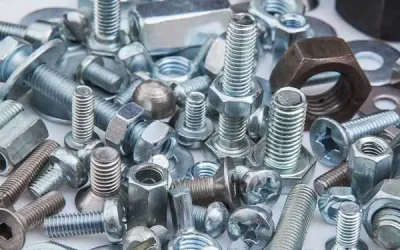Are you fascinated by fasteners, or do you find the subject tedious and confusing? No matter how you feel about nuts and bolts, there is no question that they are a vital part of engineering, and many projects would fail without the right fasteners. Whether you’re a student or a seasoned engineer, here are three things you need to know about industrial fasteners.
Grades and Property Classes
One of the most important rules of fastener engineering is that grades and property classes need to match. If there is a discrepancy, err on the side of a stronger bolt and weaker nut. If the nut has a lower strength rating than the bolt, the fastener can snap and cause a serious failure.
Differences Between Coarse and Fine Threads
Fasteners come with either coarse or fine threads, and each type has its own distinct advantages and disadvantages. Finely threaded bolts have greater strength, which make them a great choice when small or short bolts are needed. Coarsely threaded bolts are easier and faster to put together and take apart, so choose coarse threads for applications that require frequent assembly and breaking down.
Balancing Strength and Durability
The point to which bolts are tightened is another important part of fastener engineering. For the most strength, bolts should be tightened all the way up to their yield point. However, if you want your fasteners to be durable, reduce stress by leaving a little slack.


